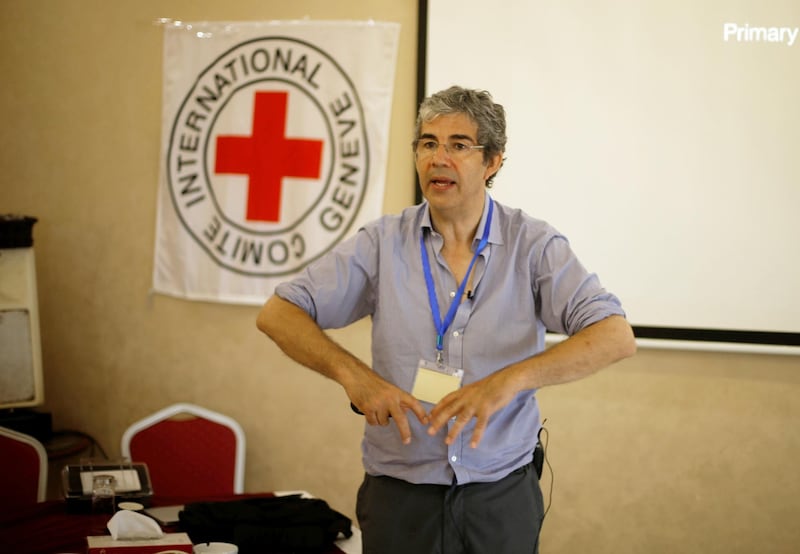A renowned British surgeon will stop directing operations in Syria from outside the country because of fears that that his electronic footprint was used to target an underground hospital, according to a report on Wednesday.
David Nott used Skype and WhatsApp to watch and advise doctors carrying out jaw reconstruction surgery in in a hospital that weeks later suffered a direct hit from a suspected Russian bomber, the Telegraph newspaper reported.
Footage of the operation was shown on a BBC current affairs programme and the doctor believes his computer was subsequently hacked and data extracted that revealed the exact whereabouts of the hospital, codenamed M10 to keep its location hidden.
The attack led to a direct hit on the operating theatre killing two patients and the hospital had to close, according to the newspaper.
“The thing that gets me is that we now cannot help doctors in war zones,” Mr Nott told the newspaper. “If somebody is watching what we are doing and blows up the hospital then that is a war crime.”
Mr Nott, who has previously carried out surgery in Syria on the ground, said he would no longer perform remote surgery that relied on a video phone and colleagues working on the ground. He has since changed his phone and computer, he said.
Experts said that the concerns expressed by Mr Nott about the hacking of his computer and the identification of the hospital were technically possible but virtually impossible to prove.
Mobile phones have been used for years by police forces to track and trace suspects. The armed forces also use mobile phone signals, radio traffic and other electronic devices to target suspected terrorists. A US whistleblower claimed in 2014 that 90 per cent of all drone strikes on terrorist targets in Afghanistan were based on targeting using mobile phones, according to US media reports.
“It’s something that has been done quietly but on a large scale for a long time by the US and others and increasingly by Russia,” said Justin Bronk, a military sciences researcher at the Royal United Services Institute. Russia has used equipment to disrupt radio transmissions, forcing the Ukrainian military units to use mobile phone networks that were easier to crack, he said.
“Someone’s computer I am sure has been used many times in triangulating or going after someone. It’s very hard to pinpoint with any certainty what was the source for this particular strike but there’s nothing there that screams out that it’s technically infeasible.”
Militaries across the world are being forced to constantly examine their security policies because of the explosion in use of personal GPS-enabled devices. Researchers highlighted potential problems after the tracking software used for the Strava fitness app gave away locations of secret military bases.
The app is popular with members of the military and the heatmap showed where soldiers had been exercising in countries like Syria, Iraq and Afghanistan, around secret camps.
British soldiers are among those who hand in GPS-enabled devices before they head into war zones because of concerns that they could give away their positions.






